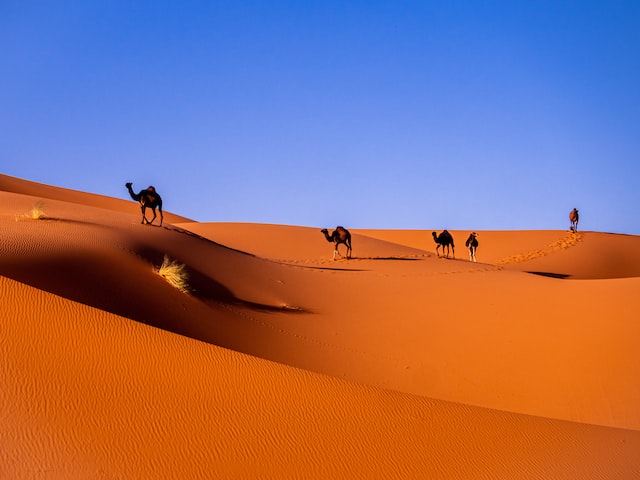Morocco is a country of contrasts, where ancient history meets modern culture, and traditional customs blend with contemporary lifestyle. From the bustling cities of Marrakech and Fes, to the breathtaking landscapes of the Atlas Mountains and the Sahara desert, Morocco offers a wealth of experiences for travelers. It is a land of vibrant colors, rich history, and diverse landscapes that are sure to leave a lasting impression on visitors. In this Ultimate Morocco Travel Guide, we will take a comprehensive look at how to plan the perfect trip to this fascinating country. From the best time to visit, to where to stay, what to eat, and what to see and do, this guide will provide you with all the information you need to make the most of your journey to Morocco.
This North African country is a melting pot of cultures, where the influences of Berbers, Arabs, and French can be felt in its art, architecture, and cuisine. The souks of Marrakech and Fes are a must-see for shoppers, while the Atlas Mountains and the Sahara desert offer a chance to escape into nature and experience the traditional nomadic lifestyle. The coastal town of Essaouira is a UNESCO World Heritage site, known for its beautiful beaches and vibrant arts and culture scene. The blue town of Chefchaouen is also a popular destination for its stunning blue-painted buildings and laid-back atmosphere.
Morocco’s rich history is also evident in its architecture, from the ancient medinas of Fes and Marrakech to the Bahia Palace and the Royal Palace in Marrakech. The country is also home to many traditional festivals and events, such as the Marrakech International Film Festival, the Festival of Sufi Music in Fes, and the Imilchil Marriage Festival.
When to visit: The best time to visit Morocco depends on what you want to see and do. Spring (March to May) and fall (September to November) are the best seasons for visiting, as the weather is mild and comfortable. Summer (June to August) can be hot, with temperatures reaching up to 40 degrees Celsius, making it less comfortable for traveling. Winter (December to February) can be cold, especially in the Atlas Mountains and desert regions.
Where to stay:

Morocco offers a variety of accommodation options, from traditional riads and kasbahs to modern hotels and resorts. For a truly authentic experience, staying in a riad or kasbah is recommended. These traditional Moroccan houses have been converted into guesthouses and offer a unique insight into Moroccan culture and lifestyle. For those looking for more luxurious options, there are also many high-end hotels and resorts available.
What to eat:

Moroccan cuisine is a delicious blend of Berber, Arabic, and Mediterranean influences. Some of the must-try dishes include couscous, tagine, and pastilla. Street food is also popular in Morocco and offers a great way to try local dishes at a low cost. Be sure to try the traditional mint tea, which is served throughout the day and is an important part of Moroccan culture.
What to see and do:

Morocco offers a wealth of experiences for travelers. Some of the must-see sights include the ancient city of Marrakech, the medieval city of Fes, and the stunning architecture of the Bahia Palace and the Royal Palace in Marrakech. The Atlas Mountains offer a great opportunity for hiking and trekking, and the Sahara desert is a must-visit for those interested in experiencing the desert lifestyle. The coastal town of Essaouira is a UNESCO World Heritage site, known for its beautiful beaches and vibrant arts and culture scene. The blue town of Chefchaouen is also a popular destination for its stunning blue-painted buildings and laid-back atmosphere. Additionally, there are many traditional souks and markets, such as the souks of Marrakech and Fes, where you can shop for traditional Moroccan crafts, textiles, and ceramics.
Tips for traveling:

When traveling in Morocco, it’s important to respect the local customs and culture. Dress modestly, especially when visiting religious sites. Bargaining is a common practice in the souks and markets, so be prepared to haggle for a good deal. It’s also important to be aware of your surroundings and take necessary precautions for your safety.
Conclusion:
Morocco is a country of contrasts, where ancient history meets modern culture, and traditional customs blend with contemporary lifestyle. With this ultimate Morocco travel guide, you’ll have all the information you need to plan the perfect trip and make the most of your journey to this fascinating country. From the best time to visit, to where to stay, what to eat, and what to see and do, you’ll be able to experience the best that Morocco has to offer. So, pack your bags and get ready for an unforgettable journey in Morocco.

